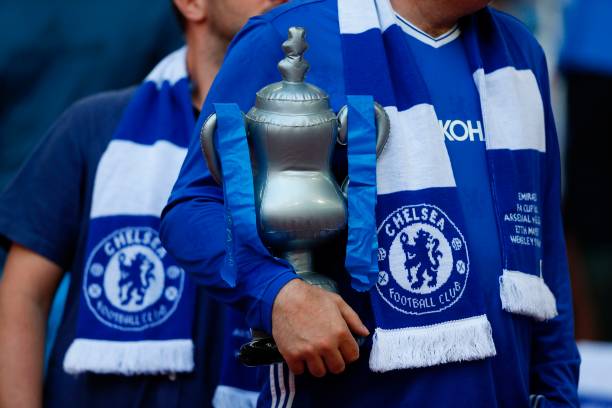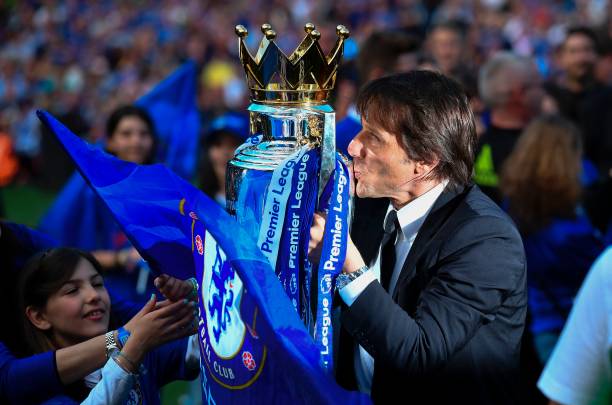Chelsea Football Club, owned by Russian billionaire Roman Abramovich, are currently the Premier League Champions. The Blues have become one of the top footballing sides in the world after the Russian bought the club.
Heavy investments led to the arrival of top talents and some world-class managers to the club and Chelsea have won all there is in the last decade.
Five Premier League titles, four FA Cups, three League Cups, one Europa League and one much-coveted Champions League has made the Blues the most successful English club since the Russian oligarch took over.
Abramovich is an ardent football fan.
It was back in the 2003-04 season, the final league match between Chelsea and Liverpool, a virtual knockout match to qualify for the final Champions League spot. Dubbed as the £20m match, Chelsea’s historic 1-0 win and gaining the final Champions League spot saw Abramovich buy the club for £140m. He has since gone on to invest over £1 billion thus putting the Pensioners on an equal footing with the giants of European football.
The Russian revolution at the Stamford Bridge saw Chelsea bring in the likes of European Champion Jose Mourinho to manage a newly assembled superstar squad consisting of players like Frank Lampard, Didier Drogba, Petr Cech, Arjen Robben and many more.
Money was no longer an issue at SW6 as Roman was ready to supply whatever was needed to bring home the coveted Premier League title. Two back-to-back titles followed with other domestic success establishing Chelsea into a dominant force and the Londoners never looked back from there.
As Roman’s Empire began to expand, he ensured there was no discrepancy and anybody who challenged his authority was shown the door at the club. Success was the one and only qualification required for managers to last and needless to say many tasted the dust after failing to comply with the Russian’s high level of trophy-demands.
Fifteen years into the Roman Empire, Chelsea have won every possible trophy.
So what next for the Russian billionaire?
Roman looks set to continue with the club he has so heavily invested in although his recent actions may have shown that he is likely to become a little more stringent with the purse. Chelsea have a system of signing players well under the age of thirty as they are likely to have a good resale value should the club decide to discontinue with the player. Such a ploy has come in handy for the Stamford Bridge outfit as they have gained massively from selling a few of their star players to balance the books.
Finally, there is the huge Chelsea loan brigade, a total of 34 players this season. It is unlikely most of them will ever see the face of the first-team. These players were signed on to the club for prices in nuts and now are being developed by being loaned out so that the club can margin a huge profit.
With such an efficient system set in place, along with the policy of hiring managers over a short-stint who will deliver trophies, it is difficult to see what is actually going wrong at the club. The current success in terms of trophies and balancing the chequebooks might be a win for the Russian but it is eating away at the very essence of a football club.
The very game of football dictates passion. The Chelsea hierarchy, however, rules with ruthless yet efficient pragmatism. No player is shown respect in terms of loyalty, the young loanees are most likely to head for the exit door as soon as their loan spell expires and the current crop of stars are only appeased as long as they are useful.
The treatment of Frank Lampard (not being given a new contract despite accepting a wage cut) and moving on John Terry instead of keeping him as player-cum-coaching staff shows that the club has no place for emotion. They do as much is required by their PR team so as to not lose the fan base but otherwise, Roman’s board works solely with one focus: return on investment.
The manager is given very little power over transfers and hence is never able to assemble a squad of his liking; which in turn results in a drop of performance and leads to the firing of the coach. The new man coming in is again given the same set-up, where his tactical and management brilliance leads the team to trophies. He stays only as long as he is a ‘yes-man’ to the board which no world-class manager will be over a period of time. And again round goes the board, looking to replace the manager/coach.

As Roman keeps hiring and firing players and coaches according to his whims and fancies, barring a few exceptions, the football world has begun to catch up with the antics of the Chelsea board. Players and managers display loyalty only and only if they are given some respect and the treatment of Chelsea Football club towards its workers is not an example worth setting.
Roman and his board have done well in terms of adding financial strength and competitive success. Chelsea now stand in the company of the elite and will be hard to remove as long as Roman continues to stay. The club looks set to enjoy success for over the next decade or so. However, Chelsea’s current policy towards players and managers is becoming transparent and may not hold the club in great esteem should it stay the same in the near future.
Chelsea fans should thank Roman for his investment and for putting Chelsea on the world map, but if it eats away at the worth and values of a football club, is it worth the expense for the club so ironically named ‘The Pensioners’?






